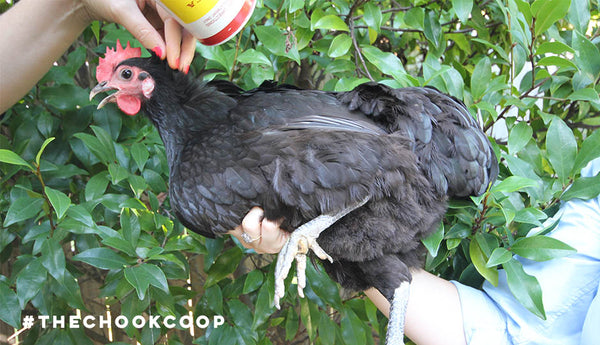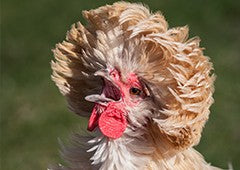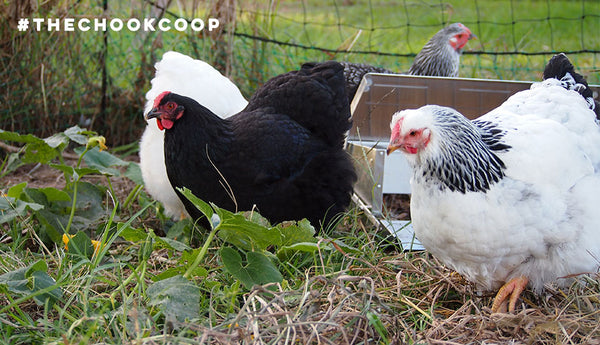What is the Avian Leukosis Virus?
The Avian Leukosis Virus (AVL) is a tumor causing virus which infects several types of poultry and doves. AVL causes the disease known as Lymphoid Leukosis.
Lymphoid Leukosis- At a Glance
Lymphoid Leukosis (LL) is a disease found primarily in adult chickens. For those of you who raise a variety of poultry, this disease can also affect guinea fowl, quail, pheasants and doves.
This disease attacks an unsuspecting bird’s white blood cells- the cells necessary to fight disease. Now, without weapons to fight illness, the bird becomes very susceptible to other infections such as respiratory diseases and Coccidiosis. When symptoms of these other conditions present themselves, you will most likely seek the help and advice of your veterinarian. Unfortunately, treatment may not bring about desirable results due to the fact that birds already infected with Lymphoid Leukosis do not seem to recover 100%.
Lymphoid Leukosis goes on to cause more damage in the form of tumors. Chickens with LL will develop tumors in their internal organs: the liver, the spleen, the reproductive organs, the kidneys and bones as well. Typically though, only a small percentage of infected birds will get tumors.
Symptoms of Lymphoid Leukosis
The incubation period for Lymphoid Leukosis is approximately 4 – 6 months. This abnormally long waiting period is unfortunate for backyard chicken keepers-by the time symptoms appear, the poor infected chook(s) will only have a short period of time left to live among your beloved chicken flock.
During this incubation period, a chook(s) will appear to be feeling a bit under the weather. You may suspect that your fine feathered friends have a respiratory infection. Or, they may develop diarrhea, which by itself is quite common among backyard chicken flocks due to their increased water intake during extreme heat in summers. However, diarrhoea can also be an indicator that your chook has a more serious condition. Coccidiosis, a worm infestation, a viral or bacterial infection, kidney issues, or inappropriate feed can all cause diarrhoea in poultry.
In general, chooks with Lymphoid Leukosis induced tumors will become increasingly weaker and abnormally thin, their combs will shrivel, their abdomen will swell, their droppings will appear as greenish diarrhea, and eventually they will succumb to death.
What’s the Diagnosis?
Accurate diagnosis of Lymphoid Leukosis can only be accomplished post mortem. However, due to similarities between tissues infected with Marek’s Disease and those infected with LL, it is often quite difficult for veterinarians to distinguish between the two.
Transmission of the Avian Leukosis Virus
AVL is transmitted from one chicken to another in four distinct ways. First, a mother hen can spread the virus to her chicks via the eggs. Secondly, any infected newly hatched chicks can infect their wee siblings. Thirdly, the virus can also spread when mating occurs within your flock. And, fourthly, AVL can be transmitted through bites from the infamous Red Mites, flies and lice.
Thankfully, this virus is NOT transmitted through the air, but infected birds who do not develop tumors will be carriers for the duration of their lives.
Prevention and Treatment
Unfortunately, the future is rather bleak for infected hens that develop tumors, as there are no preventive measures in the form of vaccines or treatment for Lymphoid Leukosis. At this point, the only thing and the greatest thing you can do for your beloved chooks in the end stages of this disease, is to tend to them, keeping them as comfortable as possible.
As mentioned previously though, because lifelong carriers can transmit LL through mating and through a hen’s eggs, you can proactively prevent this disease from spreading further. If your precious flock has been exposed to Lymphoid Leukosis you should consider separating males and females. And, if you have ladies that tend to go broody, it is highly advisable to break them of the habit or to simply collect eggs more often so as to prevent incubation from occurring.
By purchasing eggs and/or chickens from reputable breeders or hatcheries, you can rest assured that your flock will not be infected with or carriers of Lymphoid Leukosis. Thankfully, most breeders worldwide have eliminated the virus from their breeding stock. Yay! Also, you can help your chooks by keeping Red Mites, biting flies and lice away from your coop. They’ll certainly be flap-happy with glee to be pest free.
If you do recognize symptoms of Lymphoid Leukosis among your flock, please seek veterinary care immediately!
It can be stressful and worrying when things aren't going well with your chooks. We chicken keepers want to do an eggcellent job when caring for our feathered friends. From herbal treatments to disease prevention, make sure that you've got the knowledge you need to raise happy, healthy chooks. Did you know 67% of chicken keepers surveyed experienced a chicken health or behaviour issue in the first 12 months that they didn’t know how to handle?
But don’t worry! Our feathered friends over at Chickenpedia have created a Chicken Healthcare Course. It is a comprehensive online course that includes everything you need, including what to look for in an unhealthy chicken and how to support your egg-laying hens to optimal health. All of their courses are really well structured and filled with vital information, which is why I highly recommend them to all of my readers! From raising baby chicks to feeding to behavior, you’ll find valuable information that’ll give you the knowledge and confidence to successfully look after your chickens.
No need to wing it! Check out Chickenpedia today. As a member, you will also get access to the ALL of their chicken courses!

















